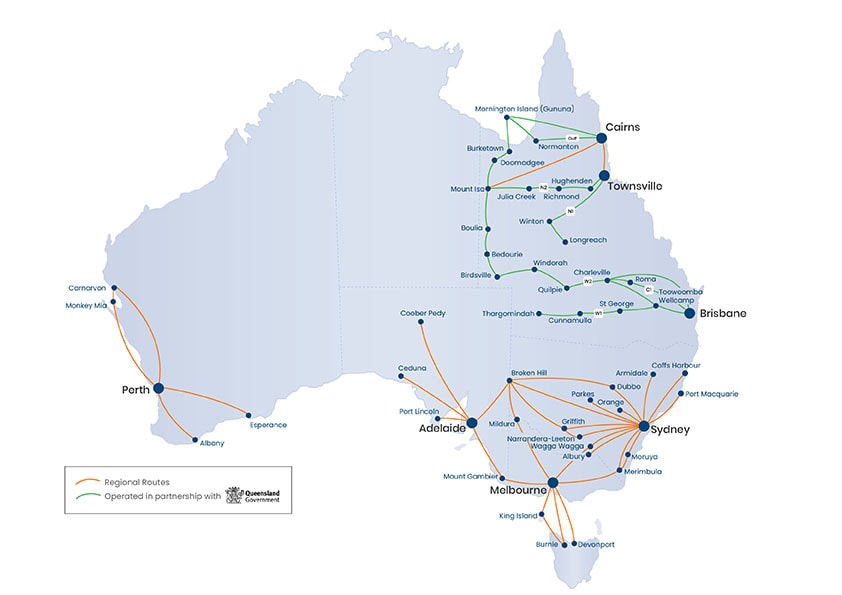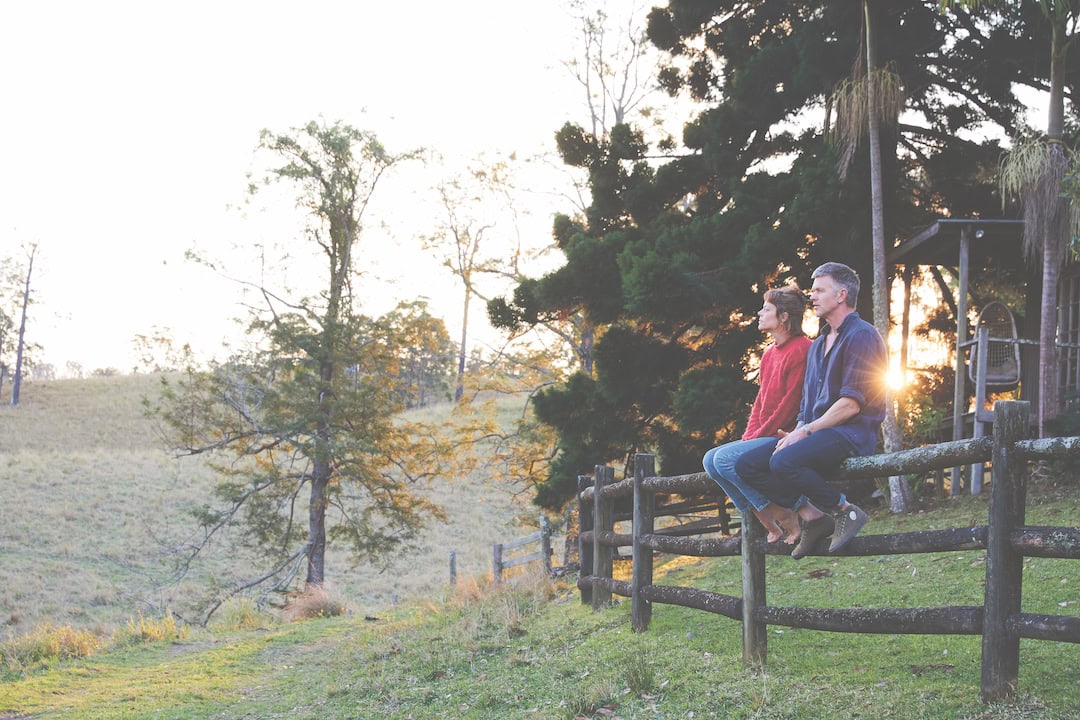Scott Gooding and Matilda Brown are the pair behind The Good Farm Shop, a kitchen that delivers 100% pasture-raised and organic meals across Australia.
Recently, they have unveiled The Good Farm Cookbook, a culmination of everyday family recipes inspired by their experience working on the land and practising regenerative farming techniques. We spoke to them about the importance of clean, healthy food.
Opening image: Scott and Til, authors of The Good Farm Cookbook. Image: supplied.
What is your favourite thing about cooking?
For me, cooking is a time to create, think, relax, conjure and unplug. The kitchen is my ‘safe-place’ at any gathering or party. It’s the room you’ll most likely find me in. There are so many things I enjoy cooking, but I do love the simplicity of a steak or the anticipation of a slow-cooked dish.
What sets your recipes apart from the other cookbooks on the market?
What makes them uniquely ours is the inclusion of our lifestyle and ethical values. Til and I try our utmost to live a healthy(ish) lifestyle and avoid the common inflammatory foods. We also value the provenance of food and good farming practices including regenerative, organic and biodynamic. This means our recipes reflect the intersection between health and provenance, whilst tasting delicious… food has to taste delicious!
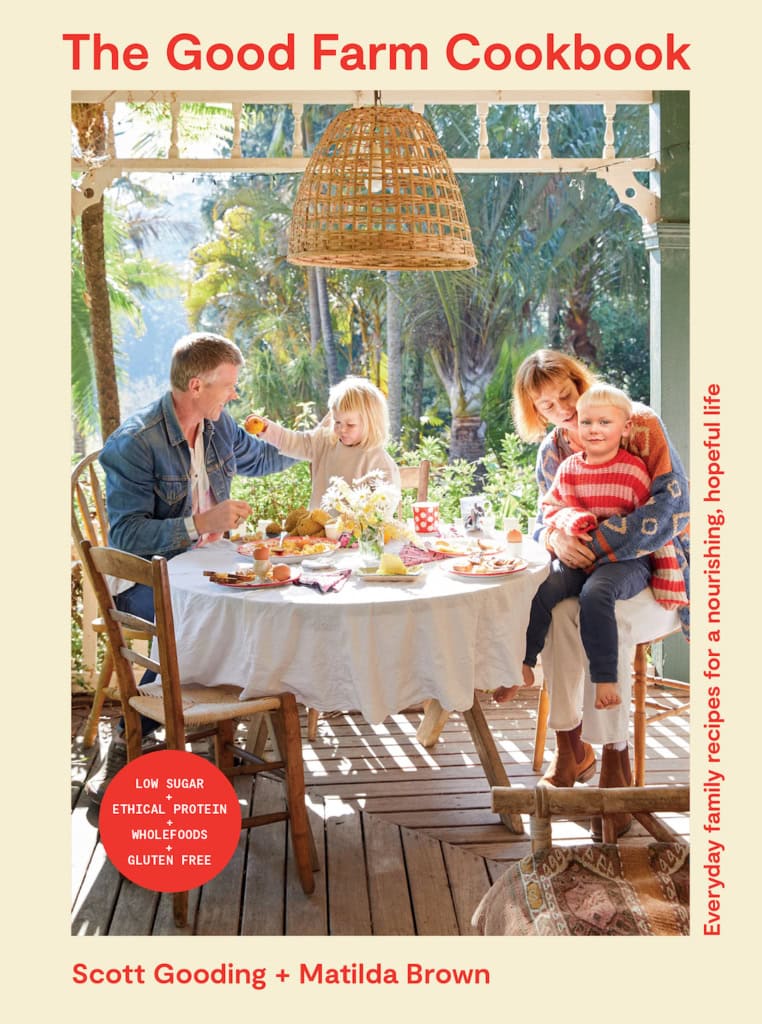
How has building The Good Farm Shop helped you in this new venture?
The Good Farm Shop started with a cow-share scheme. In essence, Til and I wanted to eat the beef that our family farmed, so we devised a plan to access that beef and share it with others. This rapidly grew into a business which utilised multiple regenerative farms to source everything you would expect to find in a high street butcher. We also started to make ready meals from our surplus of beef, and eventually this became the only program as the public’s appetite for this style of food helped us to grow. The Good Farm Cookbook is a spin-off of this business and an opportunity to further share our delicious food and values around food provenance.
How does living on the farm inform your approach to cooking and sourcing ingredients?
Although we spend a great deal of time on the farm, we actually live on the northern beaches in Sydney. I suspect one day we will move there but for now Sydney is home. I’ve been advocating for a paddock-to-plate style of eating for many years and have always given it a nod in my books. I guess being connected to the farm helps us appreciate food in its truest and most-real sense.
Why is regenerative farming so important for our planet?
Regenerative farming encapsulates a methodology and philosophy of farming which prioritises land, soil and animals. It focuses on natural processes rather than the use of chemicals which only degrade soil and contaminate waterways. An example of regenerative agriculture is using cattle to ‘mow’ grass to keep it in a state of photosynthesis which optimises carbon sequestration. This mobbing and moving of cattle on a frequent basis (daily or more in summer) is known as cell-grazing. Mingling of multiple species is also indicative of regenerative farming, counter to industrialised agriculture where we see mono-cropping or mono-culture and feedlot environments. Chemical intervention can be avoided by cover cropping or using animals like chickens to naturally fertilise the soil and assist with pest control.
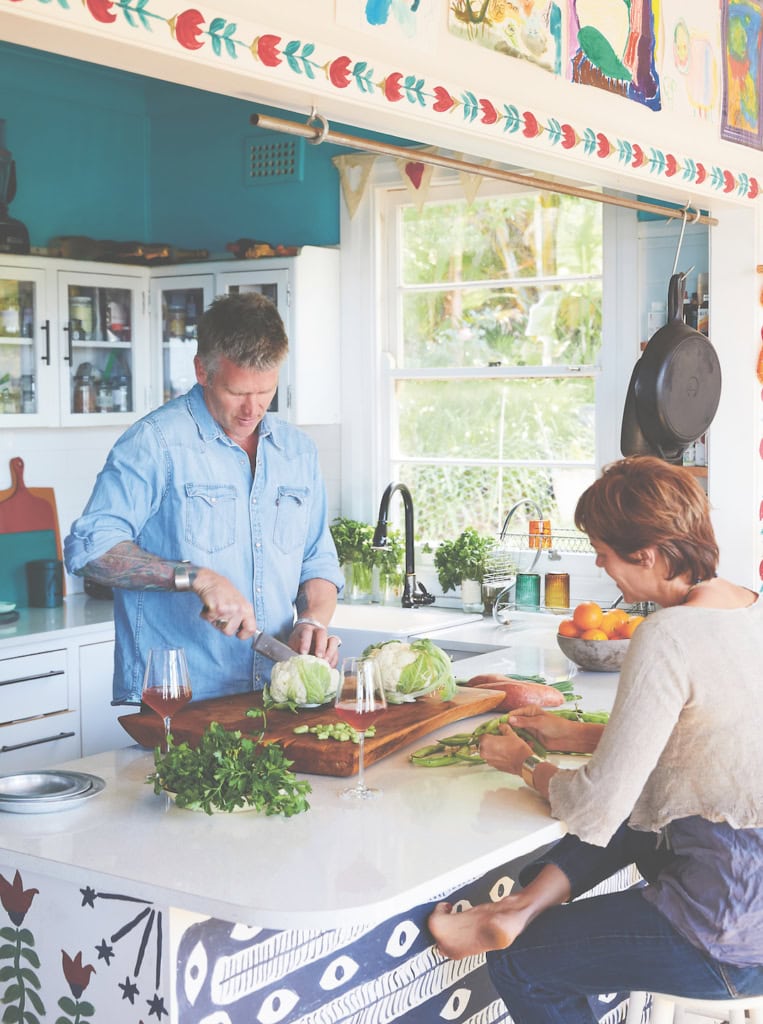
How have your relationships to food changed over time?
Scott: I come from a background in health and nutrition, so there have been periods over the last 15 years where I’ve been quite pedantic about the foods on my plate. However, these days I’m much less rigid and have some flexibility in my diet – which is a much happier place to be.
Til: My relationship with food has been a rocky one. When I met Scott, I knew very little about nutrition, yet I had spent the majority of my teen and adult life trying to understand what to eat. My weight fluctuated, and in a bid to lose weight I tried every diet under the sun. But none were grounded in common sense or the foundations of real, nutritional knowledge. They were quick fixes that ended up causing my body and my hormones more harm than good. Luckily, Scott came into my life, and through his passion and knowledge I started to undo the bad habits and establish new ones. My relationship with food (and consequently my body) is now much more enjoyable.
What do you hope readers will take away from this cookbook?
We hope that they are inspired to cook these recipes, as we’re both firm advocates of the health benefits that come when cooking at home. We also hope it will make readers consider where our food comes from. Are there different choices to be made for the betterment of human health, soil health, animal welfare, and the health of the planet? How can curiosity kickstart a food journey?
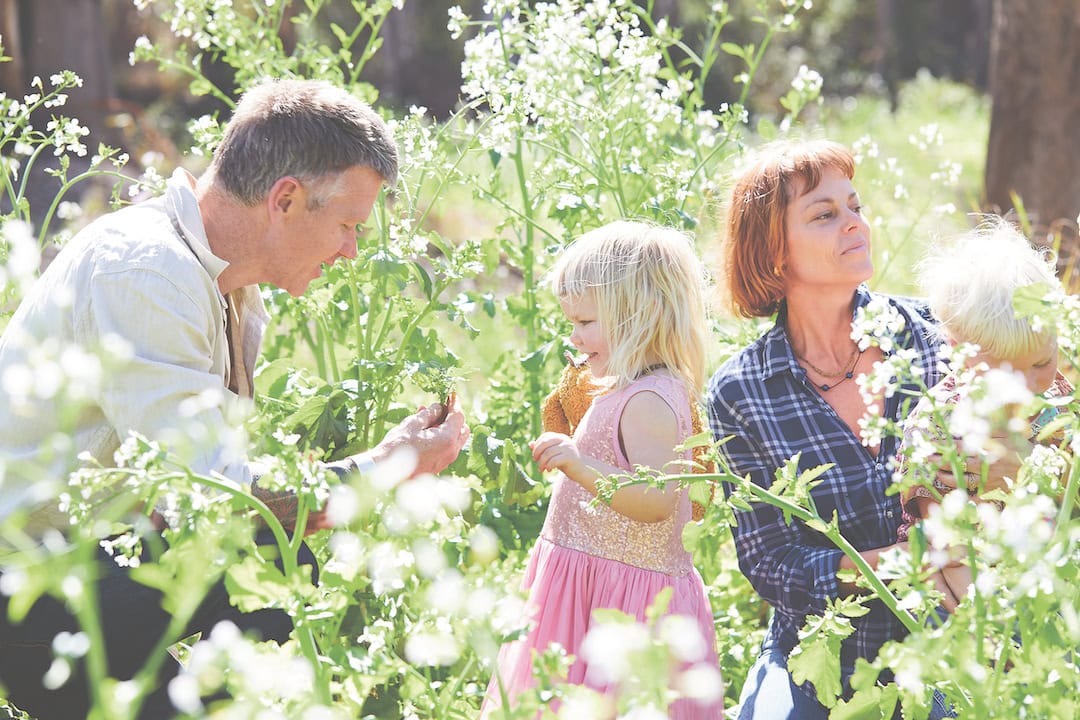
What’s next for The Good Farm Shop?
We are busy in our production kitchen keeping up with orders for The Good Farm Shop, and we are always designing new recipes to add to the site. Most recently, this has meant kids meals. We have also just released a series of courses designed to equip the everyday person with basic nutritional knowledge. We’ve been so busy building the business these last few years that we haven’t even had our honeymoon (we got married five years ago), so we’re heading to NZ with the whole family for a much-needed break. While we’re there we might also explore the food culture for more inspiration.
Images and text from The Good Farm Cookbook by Scott Gooding and Matilda Brown, photography by Cath Muscat. Murdoch Books RRP $39.99.
For more awesome reviews, check out our Events & Reviews section.
